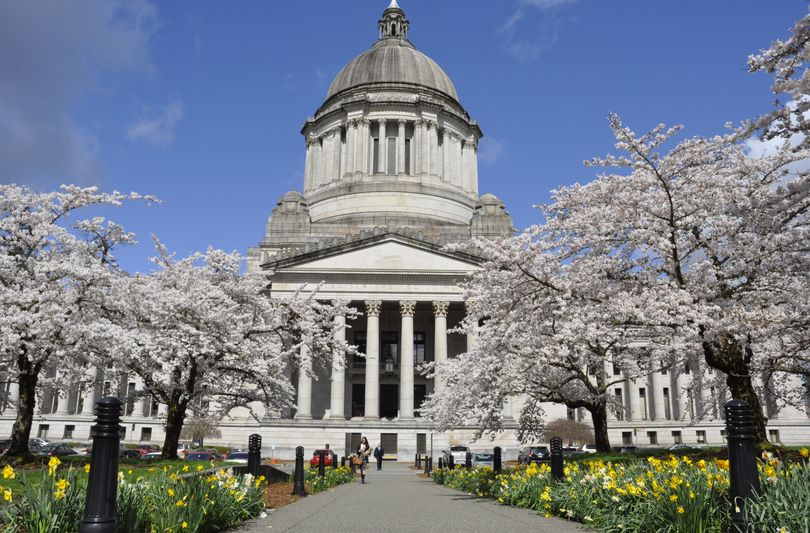Answers to common questions about the special session

OLYMPIA – Whenever the Legislature goes into special session, my phone messages and email inbox start to fill up with suggestions, comments and questions.
Some of them, not surprisingly, aren’t suitable for a family newspaper, or perhaps even an X-rated movie. Note to KMA72: There are certain places were lawmakers couldn’t possibly put their heads, so a suggestion that they remove them is not helpful.
But some of them come up every special session, so perhaps it’s a good idea to answer them in one place.
How special is a special session? Not very. The Legislature hasn’t manage to finish its work in the constitutionally allotted time for seven of the last eight years.
Isn’t eight years the amount of time you’ve been covering the Legislature for The Spokesman-Review? Yes. No connection, though.
Seems a bit suspicious. Are you sure? Pretty sure, unless you put stock in a recent Facebook post by Sen. Doug Ericksen, R-Ferndale, who wrote that the Main Stream Media is partially responsible for repeated special sessions as a way of building up big spending Democrats and making frugal tax-hating Republicans look bad (I’m paraphrasing a bit here, but that’s his general drift.)
Ericksen? Why do I know that name? He’s the senator who got a temporary gig with the Environmental Protection Agency as reward for helping run Donald Trump’s state campaign. He got some criticism for spending part of the session in Washington, D.C., and collecting paychecks from the federal government and the state, which turns out to be perfectly legal according to lawyers he checked with.
So you MSM guys are getting back at him by forcing a special session? No, the Legislature needed extra time to reach agreement on the 2017-19 general operating budget, the thing that covers many of the state’s programs and salaries. Before they reach agreement on that, they need to figure out how to fix the state’s public school system, which takes up about half of that budget.
How far apart are they? In terms of spending, about $1.5 billion between the Senate Republicans’ budget and the House Democrats budget. In terms of tax policy, about a light year.
Was it a big surprise that the Legislature needed a special session? Not really. Even though legislators and Gov. Jay Inslee professed confidence that they would finish on time up until about a two weeks ago, that was mainly for show. None of them wanted to be the first to say they would need a special session. But legislators were about as shocked to discover they would be going into overtime as Capt. Renault was to find gambling going on in Rick’s Bar, in part because an effort to get a negotiated plan by January to fix the school system failed.
Do they get overtime pay for going into overtime? No, overtime is used as a sports metaphor, not a wage and hour term. Maybe we should say extra innings, because just as a baseball game can go on and on if the score remains tied, special sessions can continue until a deal is struck.
Forever? Probably not forever. The state fiscal year ends on June 30, and without an operating budget that has passed the Legislature and been signed by the governor, the state legally can’t spend money for many programs and salaries on July 1. In 2013 and 2015, the last two times the Legislature had to pass a two-year budget, sealing the deal took the state up to the evening of June 30. After July 1, people who haven’t been paying much attention to the budget fight might start calling their legislators when they can’t find the state parks closed or state offices locked.
But do they get more money for being in special session? Not exactly. A legislator’s salary is the same – $46,839 per year – regardless of the length of the session. In a sense, that should be an incentive to get done early, go home and let the paychecks roll in, but it never seems to work out that way. During a special session, they can collect their $120 per diem for expenses, although not all of them do.
Can we throw them all out and start over with a new set of legislators? Not quickly. The entire House and half of the Senate is up for election in November 2018. If they’re still in special session by then, most of them will probably quit on their own.